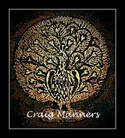|
By John Stonestreet
Explicit material is everywhere, and there’s absolutely nothing we can do about it, right? Wrong. If you had any doubts about the pernicious hold of pornography on American life, recent headlines should lay them to rest: The Ashley Madison website hack … the well-publicized scandals involving Josh Duggar and Jared Fogle … the spectacle of heavily painted topless women parading around Times Square in broad daylight . . . it’s all overwhelming. We’ve gone over some of the stats on BreakPoint before, but here are just a few from the Covenant Eyes website: there have been about 1.5 billion internet searches for porn since the start of the year. Porn in America is a $13 billion industry every single year. And of course the impact goes deeper than any statistic can measure—lost marriages, private and public humiliation, ruined lives and ruined ministries. It can seem that this porn culture is unstoppable. But I have some rare good news—it is possible to push back. The Hilton hotel chain has just removed all pornography channels from its hotels in 85 countries. And you know what prompted this decision? Hilton’s executives were receiving as many as 1,000 emails a week asking them to take that step. A key factor in this development was that Hilton already had a policy against their properties being used for sexual exploitation. Pat Truman, president and CEO of the National Center on Sexual Exploitation, which organized this three-year campaign, said that Hilton eventually “realized it didn’t make sense to be against [sexual exploitation] while promoting pornography, which is so closely connected to it . . . Sex traffickers use pornography to sell prostitution. It’s all connected.” He’s right. In addition to all the other ills linked to this social ill, the link with sex trafficking has been well documented. According to a report in Scotland, for example, a statistically significant association exists between pornography use by men and the frequency of their use of women in prostitution. Another study states, “Interviews with 854 women in prostitution in 9 countries…made it clear that pornography is integral to prostitution . . . [A]lmost half … told us that pornography was made of them while they were in prostitution. Forty-seven percent of respondents were upset by attempts to make them do what their clients had previously seen in pornography.” In an era where top dollar is the bottom line, it’s great to see a corporation like Hilton do the right thing. So let’s congratulate Hilton hotels. And I should mention that Hilton joins a short but growing list of hotels who have previously made the same decision. The National Center on Sexual Exploitation says that Omni, Drury, Ritz-Carlton, Nordic Choice Hotels, and Marriott have all dropped pay-per-view pornography, although some still allow guests to access porn through their own wi-fi connections. Now, Hilton’s decision won’t eliminate (porn) from American culture, but it’s a great reminder to all of us about the power of an email message or phone call delivered winsomely in the cause of decency and human dignity. It reminds us that the bad ideas that seem to dominate our culture are vulnerable because bad ideas create victims. The wreckage caused by the sexual revolution is becoming all too evident—even to the most hardened of secularists. Rather than panic and despair, let’s push back against pornography—certainly in our households, and also in our communities. Why? Because businesses and legislators are listening. Excerpt taken from Breakpoint.org
0 Comments
Your comment will be posted after it is approved.
Leave a Reply. |
Craig MannersWhile much of what is written in this Blog may currently appear to be counter-cultural, given our post-truth culture, it is in no way counter-human beings. I am always for people no matter what they think, do, or may have done in their past. Where I put forward ideas or debate against certain ideology, behaviour, ideas, movements, politics, I remain very much on the side of the human beings even though I may be opposed to their worldview, behaviour and politics. Such opposition is generally out of concern for the ultimate consequences of such behaviour or ideas, especially for children. |
- Africa
- Reflections by Craig Manners
-
Articles by Craig Manners
- While We Wait by Craig Manners
- Written on our Hearts by Craig Manners
- Cure for Death by Craig Manners
- Perfect Justice, Perfect Mercy. Only God Could do This. By Craig Manners
- Authority By Craig Manners
- Creation and Providence by Craig Manners
- Forgiveness by Craig Manners
- All Things for Good by Craig Manners
- A Complete Education by Craig Manners
- Humans. Moral beings or not?
- Soviet Era Mass Conversion Therapy Mind Control Set to Control the West by Craig Manners
- On the Road to Adelong by Craig Manners >
- What is Christianity all about? >
- Note Pad
- To be Frank!
- A Cultural Revolution
- Wanted: Men who Understand the Times
- Grieved by the Grievance Virus
Contact Craig Manners
Copyright Craig Manners © 2016 to 2019
